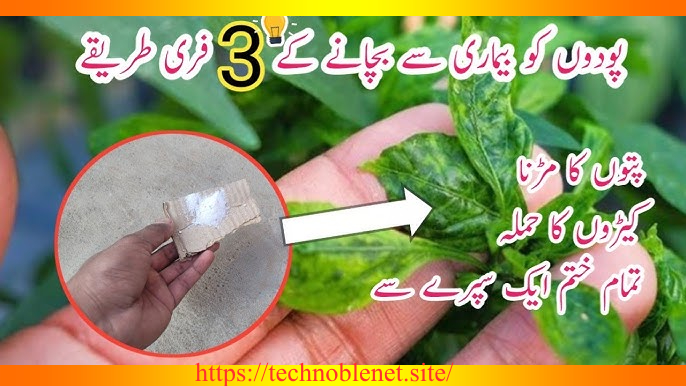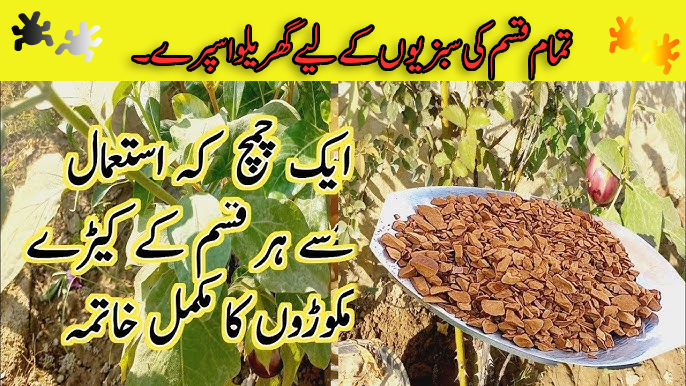In gardening, pests are an inevitable challenge that can damage plants, flowers, and crops. While many gardeners turn to chemical pesticides for quick solutions, these products can harm the environment, beneficial insects, and even the soil. For this reason, many opt for homemade pesticide sprays as a safer and more sustainable alternative. Homemade pesticides are effective, inexpensive, and environmentally friendly, making them an ideal choice for those looking to protect their plants without resorting to harmful chemicals.
In this article, we’ll explore how to create a variety of homemade pesticide sprays using common household ingredients. These sprays can help keep your garden pest-free while maintaining the health of your plants and the environment.
Table of Contents
Why Choose Homemade Pesticides?
Homemade pesticides offer several benefits compared to their chemical counterparts:
- Environmentally Friendly: Natural pesticide sprays are biodegradable and typically do not harm beneficial insects like bees, butterflies, and ladybugs.
- Cost-Effective: Homemade pesticides are easy to make with affordable ingredients that you likely already have in your kitchen.
- Safe for Humans and Pets: Unlike chemical pesticides, which can be toxic, homemade sprays use natural ingredients that are generally safe for both humans and pets.
- Effective: Many natural ingredients are just as effective at repelling and eliminating pests as chemical pesticides, without the harmful side effects.
Key Ingredients for Homemade Pesticide Sprays
You can use a variety of common household items to create effective homemade pesticides. Some of the most commonly used ingredients include:
- Neem Oil: Derived from the neem tree, neem oil is a powerful natural insecticide that can target a wide range of pests, including aphids, mites, and whiteflies.
- Garlic: Known for its strong odor, garlic has insect-repellent properties that help ward off pests like aphids and caterpillars.
- Chili Peppers: Capsaicin, the compound that gives chili peppers their heat, works as a natural repellent against insects.
- Diatomaceous Earth: This fine powder is made from fossilized algae and is highly effective against pests like ants, fleas, and slugs.
- Soap: Mild dish soap works as a surfactant, helping to break down the outer layer of insects and suffocating them.
- Alcohol: Rubbing alcohol is great for killing soft-bodied pests, such as aphids, mealybugs, and spider mites.
Easy-to-Make Homemade Pesticide Spray Recipes
1. Garlic and Chili Pepper Spray
Garlic and chili peppers are two of the most powerful natural pest repellents. Their strong odor and spiciness deter a wide range of garden pests, including aphids, caterpillars, and beetles.
Ingredients:
- 2 garlic cloves (crushed)
- 1 chili pepper (chopped or crushed)
- 1 liter of water
- 1 tablespoon of mild dish soap (optional)
Instructions:
- Blend the garlic and chili pepper with water in a blender.
- Strain the mixture to remove any solid particles.
- Add dish soap (optional) to help the spray adhere to plant leaves.
- Pour the solution into a spray bottle.
- Apply the spray directly onto affected plants, ensuring you cover both the tops and bottoms of the leaves.
Tip: Always test a small part of the plant before spraying the entire plant to make sure the solution doesn’t cause any damage.
2. Neem Oil Pesticide Spray
Neem oil is a powerful and versatile insecticide that works against a broad range of pests. It disrupts the feeding and breeding of insects while also acting as a fungicide to prevent plant diseases.
Ingredients:
- 1 tablespoon of neem oil
- 1 liter of water
- 1 teaspoon of mild dish soap
Instructions:
- Mix the neem oil and dish soap in a spray bottle.
- Add water and shake well to combine the ingredients.
- Spray directly onto affected plants, covering both the tops and undersides of the leaves.
- Apply once a week or as needed, especially during pest infestations.
Note: While neem oil is effective, it may also affect beneficial insects, so apply it when pollinators are less active, such as early in the morning or late in the evening.
3. Soap and Water Spray
A simple soap and water solution is highly effective at killing soft-bodied pests such as aphids, mealybugs, and spider mites. The soap suffocates the pests by blocking their pores.
Ingredients:
- 1 tablespoon of mild liquid dish soap
- 1 liter of water
Instructions:
- Mix the soap and water in a spray bottle.
- Shake gently to combine.
- Spray the solution directly onto pests, ensuring thorough coverage on the plants.
- Apply the spray every 5-7 days or whenever pests are visible.
Tip: Use a mild dish soap without added fragrances or dyes to avoid harming your plants.

4. Diatomaceous Earth (DE) Dust
Diatomaceous earth is a natural powder that works by damaging the exoskeletons of pests, leading to dehydration and death. It is effective against ants, beetles, and other crawling pests.
Instructions:
- Lightly dust the leaves, stems, and soil around plants with diatomaceous earth.
- Apply the powder during dry weather, as moisture will reduce its effectiveness.
- Reapply after rain or heavy watering to maintain its pest-repellent properties.
Tip: Be sure to wear a mask when handling diatomaceous earth, as its fine particles can irritate your lungs.
5. Baking Soda Spray
Baking soda is an effective fungicide that can help control fungal diseases like powdery mildew and black spot. It can also deter pests that are attracted to mold and mildew.
Ingredients:
- 1 tablespoon of baking soda
- 1 liter of water
- 1 teaspoon of vegetable oil (optional)
Instructions:
- Dissolve the baking soda in water and add the vegetable oil to help the solution adhere to plant surfaces.
- Pour the mixture into a spray bottle and shake gently.
- Spray onto affected plants, particularly the leaves and stems.
- Apply once a week or when you notice fungal growth.
Tips for Using Homemade Pesticides
- Test First: Always test the pesticide on a small area of the plant to ensure it doesn’t cause any damage before applying it to the entire plant.
- Timing: Apply homemade pesticides early in the morning or late in the evening to avoid harming beneficial insects like bees.
- Reapply Regularly: Natural pesticides may not last as long as chemical ones, so reapply them every few days or after heavy rain.
- Store Properly: Keep your homemade pesticides in a cool, dry place. Some mixtures may lose potency over time, so make fresh batches as needed.
Conclusion
Homemade pesticide sprays are an excellent way to protect your plants from pests without resorting to harmful chemicals. By using ingredients like garlic, neem oil, and diatomaceous earth, you can effectively control a wide variety of garden pests while keeping your garden safe and eco-friendly. Whether you’re an avid gardener or a beginner, these natural alternatives offer an easy and effective solution to pest problems.
Would you like more detailed information or additional recipes for homemade pest control?
